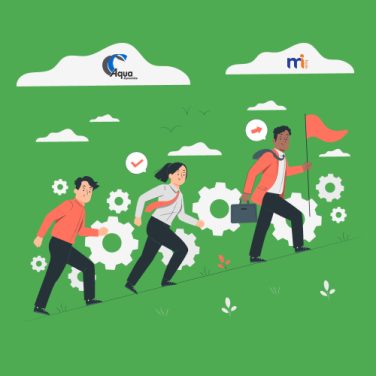Many organisations in Malaysia face challenges when it comes to processing HR tasks by hand, which can be time-consuming and prone to human error.
Automating HR processes brings a significant transformation across various functionalities, particularly when it comes to achieving payroll compliance within the framework of Malaysia’s labour laws.
Pain points of manual HR operations
There are numerous pain points associated with traditional HR systems. Most issues arise from processes that rely heavily on paperwork and human intervention, which can result in delayed approvals, inaccurate data, and incomplete records, subsequently causing disruptions in payroll processing and compliance management.
The compliance landscape is complex, yet stringent, demanding meticulous attention to detail. Not adhering to these regulations can lead to substantial penalties, placing an unwarranted burden on businesses.
Moreover, manual HR operations hinder the potential for strategic decision-making, as HR departments are bogged down with administrative tasks. This not only affects the overall productivity of the HR department but also affects business operations.
Operations such as performance evaluations, leave management, and employee lifecycle management become cumbersome and disruptive rather than seamless and efficient.
The role of automation

Given these challenges, the role of automation becomes increasingly indispensable.
By incorporating HR software solutions, organisations can streamline and automate crucial HR tasks, ensuring accuracy and efficiency. Automation allows HR teams to manage global payrolls seamlessly while ensuring compliance with Malaysian labour laws, thus mitigating the risks associated with non-compliance.
Focusing on payroll compliance, automated systems provide accurate calculations, timely payments, and comprehensive reporting – a trio that is essential for remaining compliant.
Additionally, insights from automation can aid in strategic planning, helping organisations to unlock workforce productivity and make smarter business decisions.
As businesses in Malaysia look toward future growth, automating HR processes not only addresses current challenges but also empowers them to thrive in an increasingly complex regulatory landscape.
As businesses strive for efficiency and compliance, especially in terms of payroll management, following a structured approach to HR automation could significantly benefit organisations of all sizes.
Evaluating HR processes for automation potential
Before diving into the world of HR automation, it’s crucial for businesses to identify which processes would most benefit from automation. This involves assessing current workflows and recognising areas where manual interaction leads to delays and errors.
Consider the following key HR functionalities for automation:
- Recruitment and onboarding: Automating the recruitment process can streamline talent acquisition and improve onboarding, ensuring compliance with local labour laws while enhancing new hire experience.
- Payroll management: Automation ensures accurate and timely payroll, which reduces compliance risks associated with Malaysia’s labour regulations.
- Leave and attendance management: Managing leave applications and tracking attendance manually can lead to human errors. Automation can eliminate such inconsistencies, providing real-time data for better decision-making.
After identifying these crucial processes, it’s time to integrate a comprehensive HR software solution like MiHCM, which offers a suite of robust features tailored for seamless automation in Malaysian businesses.
Using technology for enhanced efficiency and compliance
- Integrated HR platforms: Implementing an integrated HR software platform like MiHCM allows for centralised data management, ensuring all relevant HR data is accessible, accurate, and secure.
- AI-powered solutions: Leveraging AI capabilities, such as those provided by MiHCM, can assist HR teams in predicting workforce trends, enhancing payroll accuracy, and ensuring compliance with Malaysian labour standards.
- Cloud-based systems: Cloud computing facilitates remote access to HR systems, empowering HR departments to function efficiently under flexible working conditions, which is increasingly common in the digital age.
By following these steps to automate HR processes, Malaysian businesses can improve their operational efficiency and maintain robust compliance with local laws, ultimately achieving greater organisational effectiveness and employee satisfaction.
Compliance with local regulations
In the ever-evolving landscape of human resources, adhering to local labour laws while managing payroll can be daunting.
For Malaysian businesses, where regulations are frequently updated, automating payroll compliance can transform this complex task into a seamless operation.
By integrating global payroll management solutions, businesses can ensure strict adherence to Malaysian labour laws. This type of automation inherently supports accuracy in payroll calculations, which is essential for maintaining compliance and minimising risks associated with manual errors.
When payroll processes are automated, organisations can enjoy peace of mind knowing that they are in full compliance with all local statutory requirements.
Comparing manual vs. automated payroll processes
| Feature | Manual Process | Automated Process |
|---|---|---|
| Error Rate | High, due to human intervention | Low, with automated checks and balances |
| Compliance with Labour Laws | Prone to non-compliance risks due to oversight | Consistently updated with the latest regulations |
| Efficiency | Time-consuming and labour-intensive | Fast and streamlined, saving valuable time |
| Payroll Accuracy | Subject to errors in calculations | Accurate, ensuring correct employee compensation |
Automating payroll operations significantly reduces compliance risks.
Automated payroll solutions not only ensure accurate calculations but also facilitate timely and error-free payroll management. For small businesses and large enterprises alike, this means streamlined operations and enhanced financial predictability, unburdened by the trepidations of manual processing and potential compliance pitfalls.
Ultimately, by embracing automation for payroll compliance, Malaysian companies can allocate more resources to strategic initiatives, thereby bolstering HR productivity and employee satisfaction.
This shift from manual to automated processes enables HR teams to focus on strategic decision-making and unlocks workforce productivity by allowing employees to engage in more meaningful tasks.
Revolutionising onboarding with automation
The shift towards automating HR processes, particularly the onboarding process, has become a game changer for businesses aiming to enhance efficiency and productivity.
By leveraging an automated onboarding system, companies can streamline the recruitment process, ensuring a seamless transition for new hires. This transition not only saves time but also significantly improves the new hire experience.
Traditional onboarding methods often involve cumbersome paperwork and manual data entry, leading to delays and potential errors. In contrast, automating these tasks offers a more organised approach.
New employees can now access a self-service portal, thanks to solutions like MiHCM’s Employee Self-Service. This empowers them to complete necessary paperwork, review company policies, and even engage with team members before their first day.
- Streamlines recruitment and onboarding processes: Automation tools can manage a wide array of onboarding tasks, from sending offer letters to scheduling orientations, all without the need for constant human intervention.
- Enhances new hire experience: By reducing manual tasks, new employees receive a welcoming and professional introduction to the company. This automated process ensures consistency and minimises the risk of errors during the crucial first days of employment.
- Speeds up time-to-productivity: With the ability to initiate learning modules and compliance training early, new employees become productive faster, providing value to the organisation within a shorter timeframe.
Streamlining HR operations does not only enhance the employer’s ability to manage employee onboarding effectively but also fosters a more engaged workforce.
Such automation facilitates efficient HR requests and approvals, reduces workload, and allows HR professionals to focus on strategic planning rather than routine tasks.
The implementation of an online HR and payroll software proves beneficial in managing not just employee onboarding, but the entire lifecycle, ensuring organisations are compliant with local labour laws.
Lessons from leading Malaysian companies

Stepping into the realm of automating HR processes can revolutionise the efficiency and compliance of any business.
Malaysian companies have started to embrace this transformation, leveraging technology to streamline their operations and ensure payroll compliance. Let’s delve into some real-life success stories that highlight the impact of HR automation in Malaysian businesses.
One major advantage these companies have experienced is a significant reduction in compliance risks, ensuring conformance with Malaysia’s intricate labour laws without the need for exhaustive manual interventions. This results in more accurate processing and timely disbursement of payroll, thereby reinforcing their financial management strategies.
Additionally, businesses across various sectors have noted enhanced productivity and efficiency. Automating HR functions, from onboarding to payroll management, has allowed HR teams to pivot towards more strategic roles, focusing on talent acquisition and employee engagement rather than administrative burdens.
By adopting platforms like MiHCM, organisations have transformed mundane tasks into automated processes, leading to a more dynamic and responsive HR department.
Quantifiable benefits realised through such automation include a drastic reduction in payroll errors, which are notorious for disrupting the workforce’s morale and the company’s reputation.
Furthermore, employees now enjoy a smoother onboarding process and greater ease in managing their payroll and benefits, facilitating a better work-life balance and fostering increased satisfaction.
By embracing tools like MiHCM’s comprehensive solutions, businesses not only comply with complex regulations but also achieve enhanced operational excellence, paving the way for sustainable growth and innovation.
It’s clear that the future of HR in Malaysia is automated, and those who adopt these technologies stand to thrive in an ever-evolving business landscape.



